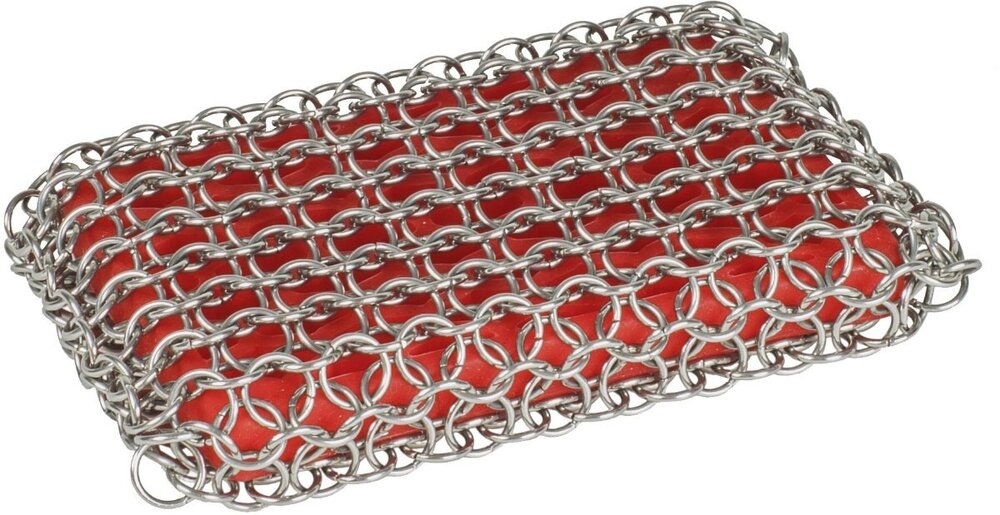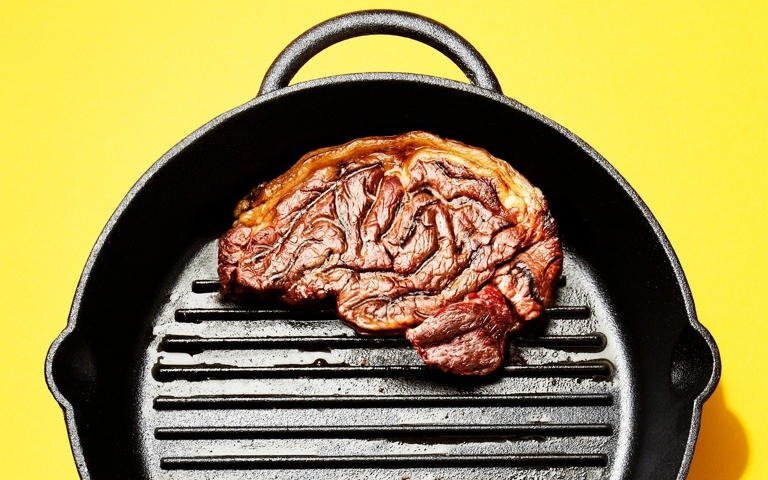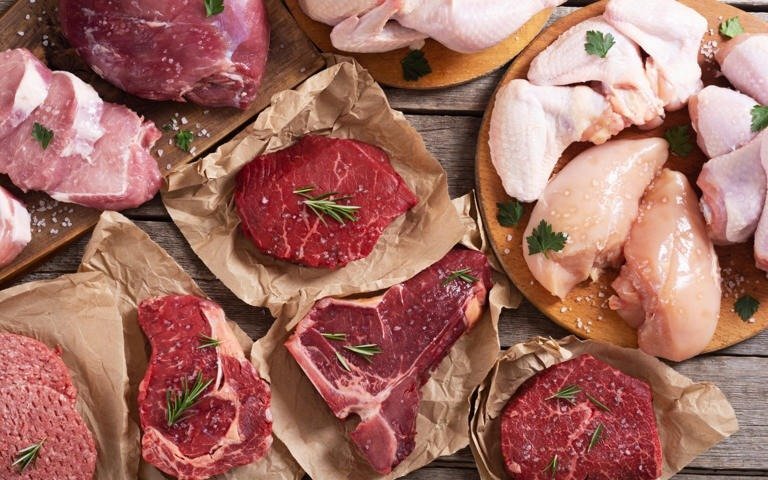-
Posts
1,308 -
Joined
-
Last visited
-
Days Won
91 -
Credits
5,343 [ Donate ]
Content Type
Profiles
Forums
Blogs
Downloads
Events
Store
Articles
Episodes
Transcripts
Gallery
Posts posted by Bob
-
-
-
-
So, last night I went to a concert with the wife - an artist she really likes. I decided to have a mixer that had some bourbon (my fav) and some wild cherry stuff for the add mix. No doubt it was some flavored sugar water or corn syrup. First time I have had refined sugar since May 2023 and yes, technically breaks the vow I made with myself.
Today, I feel like sludge. I mean absolute garbage.
And that's why it has to be a vow.
-
3 hours ago, Till said:
greeting from germany
Welcome aboard @Till. I wonder why they system gave you a big "E" as a default photo when your username and name starts with a "T", lol

My first question is how long have you been doing carnivore? If this is recent, you may not be fat-adapted yet. Of course, the trick here would be to continue pushing through and boost your fat to protein intake, which should be a minimum of 1g:1g (which is about 70:30 fat calories to protein calories). You can boost fat macros with butter, lard, tallow, ghee, cheese, heavy cream, etc.
-
On 9/3/2024 at 5:57 PM, Angela Little said:
My question is what the difference between Magnesium glycinate and malate, and what should the mg be?
Not much....
https://nutritionaholic.com/magnesium-malate-vs-glycinate/
LMNT used Magnesium Malate. SALTT used Magnesium Chloride. I personally take a magnesium complex supplement that is 4-n-1....
I believe for women you could take UP TO 320mg a day as a supplement, if you even need that much.
-
On 9/3/2024 at 8:59 AM, Scott F. said:
My weight will swing up and down into what seems like a 'moving stall'. When I happen to eat lighter for a day or so I drop weight fast, five to six pounds in a three- or four-day span. Then the moving stall happens again.
I've got this video where I share my Carb Manager weight loss graph. It goes up and down, then up and down, etc. Weight loss certainly isn't linear...
https://youtu.be/DzEsQOVUx0k?si=k8bu4kksV0pgEYq5
-
On 9/3/2024 at 3:28 AM, michael1222 said:
I plan to take Vitamin D (from lichen) + k2 (from natto), magnesium, and zinc.
All that should be fine, provided there's nothing in the lichen or natto that you would be sensitive to. I imagine it would be a rather clean extract (vitamin D collected, rest of the algae discarded) so it should be toxin free. I've never heard of it till now. I couldn't find much about it outside of natural health and vegan based websites, but that's okay. This doesn't mean it's bad. It just means they are particularly excited about it.
If you get plenty of sun, you might want to get your Vitamin D levels checked. And then if the dose is large, check it regularly. Vitamin D toxicity can be a thing.
QuoteKindly advise where I can get potassium from animal sources. Thank you.
There is potassium in all meat, with Pork reigning supreme and Chicken coming in at a close second. I have stage 4 CKD, and sometimes I get hyperkalemic (high potassium) and have to back off the bacon for 30 days or so to get it back down.
If you don't have a huge appetite, you might want to drink an electrolyte supplement like LMNT or SALTT to make up the difference. In the past, all these minerals used to be in our water. But today that's not the case.
-
On 8/29/2024 at 8:54 PM, michael1222 said:
Hi, I am new to the Carnivore diet. Can any experts please advise if I can take plant-based supplements? Thanks.
You will more than likely be just fine.
Remember that you get most, if not all, of what you need from meat alone - particularly beef and eggs, and bonus points if you can do organ meats, as they are like multivitamins in and of themselves, being very bioavailable for humans.
Certain plant based supplements might only yield a small benefit, because the plant form is not a form humans can use, so the human body has to convert it to a useable form, and it's not very efficient at that, so a lot goes to waste.
Is there particular supplements you had in mind?
- Geezy and Angela Little
-
 2
2
-
The human body can catch on to what were doing. Your metabolism was "trained" to be burning at a particular rate. Then you cut out a meal. This did two things. 1) It lowered the amount of fuel your taking in, and 2) it gave your body time to use up what you ate and tap into those reserves, and thus lose weight. But then it caught on, and slowed your metabolic rate to adapt to your new level of food intake. It's a survival mechanism. It think's there is less food (i.e. famine) and so it's conserving resources.
You could try adding back in that 3rd meal for a few days or a week. Then your body is like "okay, the hard times are passed" and it can comfortable rase your metabolic rate. Then you can cut that meal and go back to intermittent fasting.
Some people do this gradually. They used to eat 2000 calories a day, then cut it to 1500. They lose some wieght and then plateau. So after plateauing for a while (say, 30 days with no movement on the scale), they start adding calories, about 50 per day. 1550, 1600, 1650, 1700, 1750, etc etc... 2000. And then drop it to 1500 again and then the weight loss continues.
Other people try tricking their body by suddenly switching fuels (carb cycling). One day for lunch, eat some fruit. The body is like OH, we have glucose to burn. But then go right back to strict carnivore and don't do it again for a week or two.
Different "tricks of the trade" work for various individuals.
But maybe the best advice is what Dr. Berry says, in that you need some "Vitamin P" - that is - patience. Wait it out, and it will start coming off again. Just let eating right and being healthy be your main goal, and the weight loss will do it's thing in it's own time.
- Orweller, XaqNautilus, Miranda and 2 others
-
 5
5
-
On 8/31/2024 at 6:41 AM, Cory said:
Im already a hard gainer with a maintenance of around 3200-3400... the decrease in calories will be quite large. Im being offput by the idea of seeing my size drop so much, and as I am already a very lean individual
The calories don't necessarily have to decrease. If I recall, people like Shawn Baker and Anthony Chaffee, who are cut and work out, both eat about 3 pounds of meat each day. Those of us who are trying to lose weight usually add in intermittent fasting, and only eat 1-2 pounds a day, and might average half those calories or slightly more.
-
1 minute ago, Bob said:
A healthy diet is varied, with as many colorful fruits and vegetables
and whole grainsas possible, Wilde said.Fixed, lol. What are we? Cows? lol.
2 minutes ago, Bob said:“Just be mindful of the nutritional content of (the ultraprocessed foods) that you do choose to consume.”
The irony is, that even the processed meat products are waaaay more rich in nutrients than the ultraprocessed grain products.
I think when they refer to ultra-processed meat, they're having in mind Slim-Jim's, salami, and maybe certain sausages, which to their credit, is often not full of clean ingredients anyway.
4 minutes ago, Bob said:Every four years, they completed a detailed food questionnaire.
Because that's 100% reliable, lol.
Please reply in detail what you ate over the last 4 years below

- Meathead, XaqNautilus and Miranda
-
 1
1
-
 2
2
-
For the sake of preserving the article, should it disappear....
QuoteHere are the ultraprocessed foods you most need to avoid, according to a 30-year study
By Madeline Holcombe, CNN
4 minute read
Updated 9:29 AM EDT, Thu May 9, 2024
CNN —
Eating ultraprocessed foods is associated with an early risk of death, according to a 30-year study — but different foods have different impacts.
Ultraprocessed foods are those that contain ingredients “never or rarely used in kitchens, or classes of additives whose function is to make the final product palatable or more appealing,” according to the Food and Agriculture Organization of the United Nations.
Those ingredients — found in things such as sodas, chips, packaged soups, nuggets and ice cream — can include preservatives against mold or bacteria, artificial coloring, emulsifiers to stop separation, and added or altered sugar, salt and fats to make food more appealing.
Processed meats and sugary foods and drinks aren’t correlated with the same risks as ultraprocessed whole grains, for example, said lead study author Dr. Mingyang Song, associate professor of clinical epidemiology and nutrition at Harvard’s TH Chan School of Public Health.
The study analyzed data from more than 100,000 health professionals in the United States with no history of cancer, cardiovascular disease or diabetes. From 1986 to 2018, the participants provided information on their health and lifestyle habits every two years.
Every four years, they completed a detailed food questionnaire.
The group eating the least ultraprocessed food ate about three servings a day on average, while the highest averaged seven servings a day, according to the study published Wednesday in The BMJ journal.
Those who ate the most had a 4% higher risk of deaths by any cause, including a 9% increased risk of neurodegenerative deaths, the data showed.
Song described the correlation as “moderate,” noting that the connection was not equally strong among all kinds of ultraprocessed foods.
“The positive association is mainly driven by a few subgroups including processed meat and sugar sweetened or artificially sweetened beverages,” he said.
Findings in this study were consistent with hundreds of others in the field, but what makes this one unique is its parsing out of different subgroups within the ultraprocessed food category, said Dr. Marion Nestle, the Paulette Goddard professor emerita of nutrition, food studies and public health at New York University.
Do we need to get rid of all ultraprocessed foods?
Song wouldn’t necessarily advise a complete rejection of all ultraprocessed foods because it is a diverse category, he said.
“Cereals, whole grain breads, for example, they are also considered ultraprocessed food, but they contain various beneficial nutrients like fiber, vitamins and minerals,” he said. “On the other hand, I do think people should try to avoid or limit the consumption of certain ultraprocessed foods, such as processed meat, sugar-sweetened beverages and also potentially artificially sweetened beverages.”
There are also more questions that need to be answered when it comes to ultraprocessed foods.
First, the recent study is strong because of the length of time covered, but it is an observational study. That means that while researchers can observe a correlation, they can’t say that the foods were the cause of the deaths, said Dr. Peter Wilde, emeritus fellow at Quadram Institute Bioscience in the United Kingdom.
Researchers also need to look more at the components of ultraprocessed foods that might be affecting health — whether they be food additives, emulsifiers or flavors — to advise governments and institutions on how to regulate foods, Song said.
Overall diet matters most
Researchers also found that the most important factor to reducing risk of death is the quality of a person’s overall diet, Song said.
“If people maintain a generally healthy diet, I don’t think they need to be like scared or be freaked out,” he said. “The overall dietary pattern is still the predominant factor determining the health outcomes.”
A healthy diet is varied, with as many colorful fruits and vegetables and whole grains as possible, Wilde said.
“If you are worried about food additives, then choose foods that have low levels of additives,” he said in an email. “Just be mindful of the nutritional content of (the ultraprocessed foods) that you do choose to consume.”
It is also important to recognize that foods need to be eaten in balance. Fruit juice contains beneficial vitamins, minerals and antioxidants when consumed in moderation, but too much will have high levels of sugar that may override their benefits, Wilde said.
“This is not black and white,” he said. “A particular food is not either good or bad, it will contain elements of both, and the balance between the two may depend on how much you eat.”
-
20 hours ago, Andre said:
most of the supposed benefits that the carnivore diet can provide you can find on a whole foods diet with a high protein and low carbohydrate ratio.
This is true.
20 hours ago, Andre said:Cravings for sweets are very common... You will always have some craving for something sweet.
Eh, maybe at first. But in time, you train your taste buds to enjoy savory dishes, and the cookies, cakes, pies, and candy begin to look like what it actually is - not real food.
Don't get me wrong. I enjoy fruit when I choose to have it. And yes, you bet I would love some sweets if I chose to have them to. But crave them? Nah, as long as I keep abstaining from them, or keep it to a what they were always meant to be... a rare, occasional treat... then so-called "cravings" never have to be an issue.
- Meathead and XaqNautilus
-
 2
2
-
On 8/29/2024 at 9:25 AM, Scott F. said:
This trip my blood pressure was 99/66.
My glusose A1C number inched down from 4.73 to 4.32
The Vitamin D moved up 9 spots to 46.
Total cholesterol dropped some and now is at 219.
The HDL is 37 and the LDL is 187.
The triglycerides are close to the same at 75.I would be very happy if all my numbers looked this good. Yes, the HDL could be bumped up a few points, but overall you are looking just fine with these numbers, as far as these markers go.
-
16 hours ago, Andre said:
There’s very little rational thought here and a lot of dogma and emotional (negative) reaction to those who share the struggle of making this way of eating productive.
Excuse me? We have tried to help you with very rational strategies to try implementing. That does leave us wondering if you are really reading our posts.
16 hours ago, Andre said:Those who are very emotionally invested in this identity will atack you
Which we haven't done here. We've only tried to offer helpful suggestions.
There's no carnivore police here. There is no "cult of carvivore" here. We warmly welcome members who take a carnivore-centric approach to dietining but still eat some plants, whether that's animal-based (with fruit and honey) or ketovore (with cruciferous veggies). Anyone trying to improve their health with a meat-based, single-ingredient, whole-foods diet is one of us. Any "carnivore purist" is going to be expected to be tolerant of them as well.
Which is precisely why we let you continuously complain.
-
-
-
On 8/27/2024 at 10:33 AM, rpavich said:
I think now i"ll have to ...to drag out the pleasure past 2 minutes
That's good marital advice regardless of the context, lol

- Meathead, XaqNautilus and rpavich
-
 1
1
-
 2
2
-
On 8/27/2024 at 10:34 AM, Geezy said:
Well it was nice until they fell off the wagon about saturated fats.
Forever the villian, lol.
The irony is that the article says...
On 8/26/2024 at 10:09 AM, Bob said:Diets high in saturated fat have also been linked to poor cognitive function, studies show.
My cognitive function has only been tremendously enhanced.
-
So I am awake before everyone else down here in Clearwater Beach, thinking to myself - I'm not hungry, I can wait while everyone sleeps in. Then I come and catch up on this thread... and now I am starving, lol

Yesterday was a travel day. Ate eggs and cheese at Sanibel before checking out. Then had a Wendy's Baconator - no bun, while on the road. We stopped at Venice Beach and then made our way to Clearwater. Got supplies and made dinner - bacon and cheddar burgers - and this mexican queso type thing that we made in the oven and dipped our pork rinds into it.
It was good and we have some left over so I'm slathering it over my omelete this morning.
-
In this video we interview Geoff Klein, a 68 year old gentlemen from Texas who has been doing the carnivore diet since May of 2023. He used to have several metabolic issues, as well as Chrohn's, and paroxysmal atrial fibrillation. The paroxysmal atrial fibrillation would land him in the ICU at the hospital several times each year. But today, thanks to the healing power of meat and the carnivore diet, he no longer suffers these setbacks, and in fact, his cardiologist has taken him off ALL his heart and blood pressure medications.
JOIN me and my keto-carnivore friends over at https://www.CarnivoreTalk.com
Have YOU had success with a meat-based keto, ketovore, carnivore, carnivore-centric, or animal-based diet? Let's do a video together! Contact me using this form...
https://carnivoretalk.com/contact/
00:00 Introducing Geoff Klein
03:08 What is Paroxysmal Atrial Fibrillation?
06:12 Geoff's Son Introduces Him to Nutrition
08:48 Educate Yourself to Build a Foundation
11:41 How Geoff has Benefited from His Carnivore Lifestyle
18:30 Getting off His Heart & AFib Medications
21:55 Your Carnivore Results May Differ
28:30 Why Geoff Chose to Retire
30:46 Does Geoff's Family Also Eat Carnivore?
36:22 What Does Geoff Typically Eat?
43:04 Where to Follow Geoff
DISCLAIMER: The Carnivore Talk website and its audio and video content is for general informational purposes only. The use of the information found within our content or from materials linked to from our content is at the user’s own risk. The content published by Carnivore Talk is not intended to be a substitute for professional medical advice, diagnosis, or treatment. Users should seek the assistance of their health care professionals to obtain medical advice and to diagnose or treat any condition.#carnivore #carnivorediet #ketodiet #hearthealth #afib #paroxysmalatrialfibrilliation #paroxysmalafib #atrialfibrillation
-
So, I just bought my first cast iron skillet. I've been seasoning it with coconut oil.
When I am done cooking, I take the extremely hot pan over to the sink and spray it down with water - as hot as the water can get. Then, I use this little chain mail looking thing specifically designed for cleaning cast iron, but only if there is something stubborn on it that won't spray off. Then I dry immediately and grease it up again.
-
So yesterday was spent flying. At the airport, there was a Dunkin' Donuts. I ordered egg bites, and they were willing to ring up a side of sausage for $1.10. For some reason, when I opened the container it had 3 sausage patties in it. I was very happy, lol.
Then by the time we settled into our room and went for supplies it was late, so I had a meat snack and some pork rinds with a little salsa for dipping.
-
Why a healthy brain requires a meaty diet
Story by Emily Craig
 Nutrients from meat such as steak help bone health, fertility and immune function© Provided by The Telegraph
Nutrients from meat such as steak help bone health, fertility and immune function© Provided by The TelegraphWe all think we know what we should be doing to keep our brains fit, whether it’s learning a new language, socialising or getting enough sleep. Among this catalogue of habits, eating a juicy steak is unlikely to be at the top of your list.
But it should be, according to one Harvard-trained psychiatrist who specialises in nutrition science and brain metabolism. She recently claimed that the brain “needs meat” because it is jam-packed with nutrients that are either difficult or impossible to get from plant sources.
Scientists and nutrition experts seem to agree. “Animal-sourced foods – meat, fish, dairy and eggs – are nutrient-rich foods,” says Alice Stanton, a professor of cardiovascular therapeutics at the Royal College of Surgeons in Ireland, who has authored reports warning against shunning meat from our diet. A diet that consists exclusively of plant-based foods risks the brain as well as bone health, fertility and immune function, she warns.
Why is meat good for the brain?
Meat, particularly red meat, is one of the best sources of zinc. A 250g steak contains around 10.3mg – surpassing the daily recommended intake for men (9.5mg) and women (7mg).
Failing to include enough of this mineral in your diet can lead to cognitive impairment – difficulties remembering, learning and concentrating – according to Dr Katherine Livingstone, a senior research fellow at the Institute for Physical Activity and Nutrition at Deakin University in Victoria, Australia.
B12 – a vitamin found only in animal products – is another reason to eat meat, as it is vital for the healthy function and development of brain and nerve cells. “Deficiencies may impact on our memory, thinking and social abilities as we age,” Dr Livingstone adds.
Adults are advised to eat 1.5 micrograms (mcg) per day. Liver (100mcg per 120g), beef (4.4mcg per 250g) and chicken (0.53mcg per 150g) are among the most potent sources.
 The brain 'needs meat' because it is jam-packed with nutrients that are either difficult or impossible to get from plant sources. - iStockphoto© Provided by The Telegraph
The brain 'needs meat' because it is jam-packed with nutrients that are either difficult or impossible to get from plant sources. - iStockphoto© Provided by The TelegraphAdditionally, meat is a complete protein, meaning it provides all the essential amino-acids that the body needs. Eating enough of this macronutrient can lower the risk of dementia by a fifth, according to a study from the Mayo Clinic in Arizona. This may be down to protein supporting the function of neurons in the brain, the scientists suggested.
UK health advice sets out that people need around 0.75g of protein per kilogram of body weight, which equates to around 56g per day for men and 45g for women.
Per 100g, chicken (32g), pork chops (31.6g) and lamb chops (29.2g) are the richest sources. For comparison, plant-based sources of protein – such as tofu (8.1g), red lentils (7.6g) and chickpeas (7.2g) – can contain just a quarter of that amount for the same serving size.
Prof Ian Givens, the director of the Institute for Food, Nutrition and Health at the University of Reading, notes that meat also contains docosahexaenoic acid, a long-chain omega-3 fatty acid that maintains brain and neurological function – though oily fish contains even more.
Selenium is a mineral that protects cells from damage and is vital for brain signalling. Men need around 75mcg per day, while women should have around 60mcg. Pork is one of the richest sources (18mcg per 100g), along with chicken thighs (15mcg per 100g) and turkey breast (10mcg per 100g).
What meat should we eat and how much?
Official UK advice recommends eating no more than 70g of red or processed meat per day – which is around the size of a deck of cards – but there is no official guidance on white meat (chicken and turkey).
We all know that red meat can be high in salt and saturated fat, meaning that eating too much over time can raise cholesterol and blood pressure, ultimately contributing to heart and circulatory disease. Diets high in saturated fat have also been linked to poor cognitive function, studies show.
The key, as usual, is moderation. Prof Givens recommends eating slightly less than officially recommended – the equivalent of around 50g of unprocessed red meat per day and cutting out processed meat intake to zero.
It’s also important to be savvy about the cut of meat you choose.
“Fattier cuts, especially red meat, tend to be high in saturated fat. Choose lower-fat versions of minced red meat,” says Rob Hobson, a registered nutritionist and the author of the cookbook Unprocess Your Life.
“It doesn’t mean you can’t enjoy fattier meats occasionally, but it’s healthier to go for lean meat most of the time. Cuts of poultry like the thigh, drumstick and wings are fattier but you can just remove the skin after cooking if you want to reduce the saturated fat content,” he says.
For comparison, 100g of lamb can contain around 20g of saturated fat, while the same amount of turkey breast contains less than 1g.
But when it comes to white meat, although it is a good source of lean protein, it contains fewer of the micronutrients found in red meat – especially B12 and iron, Mr Hobson notes.
“As plant-based foods have grown in popularity, it has been assumed that meat is bad for you, but in fact it is very nutritious, especially lean red meat. There are wider issues surrounding meat in terms of its impact on the environment but nutritionally lean red meat is more nutritious that lean white meat,” he adds.
Prof Givens adds: “The justification for red meat consumption is really a nutritional one so I would go for lean beef, which generally has a higher iron and zinc content than lamb, although both tend to have similar vitamin B12. Pork is generally lower in all these nutrients.”
Can vegetarians and vegans still have good brain health?
While meat forms part of a healthy diet, people can still get the vitamins they need from plant-based foods – but it can prove more difficult and they will need to take supplements.
Vegetarians and vegans need to eat plenty of other sources of protein, such as beans, lentils and quinoa, to make sure they are consuming the right mixture of amino-acids.
Additionally, B12 is found naturally only in animal products, meaning those whose diets are plant-based need to eat foods fortified with the vitamin, such as cereal or soya products, or take a supplement. Studies have shown that a B12 deficiency is widespread among vegans.
Research has also revealed that the body better absorbs brain-supporting minerals zinc and iron from meat than plants.
ARTICLE SOURCE: https://www.msn.com/en-us/health/nutrition/why-a-healthy-brain-requires-a-meaty-diet/ar-BB1krrSt?









5 Days in on Carnivore Diet with Prior Major Health issues
in Greetings and Introductions
Posted
Welcome aboard @Tdyer07
I can relate to the broken ankle. I did one of those last year.
My basic way of "changing things up" is to rotate what I eat or how I prepare them. For example, ground beef can be made loose like taco filling, or made into meatballs, meatloaf, burger patties, etc. I try not to have it the same way twice in a row, lol. I will also alternate ground beef with actual steak, chicken, fish, shrimp, etc. I like eggs and a breakfast meat. I will alternate bacon with sausage, and will also rotate between scrambled, over easy, omelet, and more.
I do include cheese though. There's a ton of carnivore tricks and recipes you can incorporate using cheese.